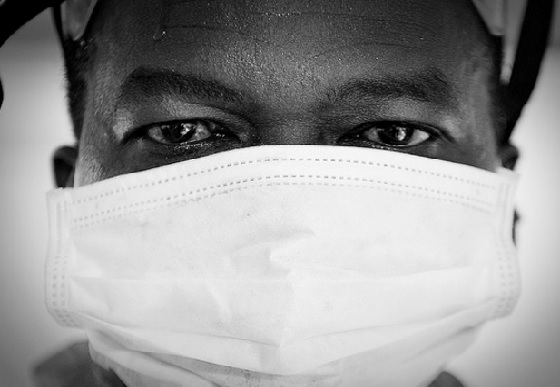How Hans Rosling helped break the Ebola perceptions code

© Crown Copyright 2014, Carl Osmond
Few people inspire such affection and respect in the humanitarian and development world as Hans Rosling. The sadness that met his death earlier this month is testament to the way he challenged and shaped the way we think about global public health and much else. With his bubble charts and narrative flourish, the self-styled ‘edutainer’ used data as a powerful prop to build our collective understanding of the links between health, inequality, population and climate change. It was when Ground Truth Solutions was working on the Ebola epidemic that swept through West Africa in 2014, claiming over 11,000 lives, that we had the privilege of benefiting directly from Hans’ powerful insight and experience.
Trying to find out how people affected by the unfolding crisis in Sierra Leone were experiencing the massive international response was as much challenge as necessity. A challenge because conducting surveys in a country that had become a virtual no-go zone is non-trivial. A necessity because at-risk citizens deserve to be heard and, by systematically incorporating their feedback in the humanitarian operation, we hoped to play a small part in beating the disease.
As we were designing our first questionnaire, I heard Hans interviewed on the BBC World Service about his work on the emergency response in Liberia. When I reached out to him he was trenchant. “There are two key questions for which we need answers quickly”, he said.
© BBC World Service
The first was what makes people with Ebola symptoms—fever, muscle pain, vomiting and so on—reluctant to report that they feel unwell. Leading the contact tracing effort at Liberia’s ministry of health, Hans was acutely aware that each additional day a person with the symptoms was out and about added a layer of complexity to identifying those who might have been exposed to the virus. It was crucial to understand and address the stigma that made people unwilling to seek early diagnosis and treatment, he said.
The second area of inquiry Hans proposed was why people with symptoms were reticent about staying quarantined in their homes for the statutory 21 days. Isolation of possible new cases was the standard procedure for getting the epidemic under control. If symptomatic people did not abide by the rules, which many were not, efforts to contain the spread of Ebola would be compromised.
Variations on Hans’ two themes became standard questions in our surveys through June 2015. Findings on what lay behind the sense of stigma helped in designing a more effective public information campaign, encouraging people to set aside their concerns about reporting symptoms for the sake of protecting the broader community; a message our research suggested was more persuasive than less specific appeals. Gradually, the surveys began to show a decline in the sense of shame associated with the disease, encouraging people to come forward.
On the reluctance to accept quarantine restrictions, the data helped surface the reasons for the persistently negative perceptions—sporadic food supplies, lack of basic medicines, and too little water for cooking and washing. By acting on the findings, conditions began to improve and, as they did so, our surveys indicated that people became less reticent about what might await them in quarantine.
Tracking stigma and wariness about quarantine provided important insight in the fight against the epidemic and—on top of his efforts to mobilize funds and establish an Ebola course for international aid workers whilst serving on the front lines in Liberia—illustrates why Hans’ name elicits such admiration and respect. His extraordinary achievements across a wide range of scientific endeavor will long remain an inspiration to those of us persuaded by the power of data and evidence to challenge our assumptions and build a deeper understanding of one another and the world around us.
Ground Truth Solutions and Hans Rosling’s GapMinder Foundation are both supported by the IKEA Foundation.

